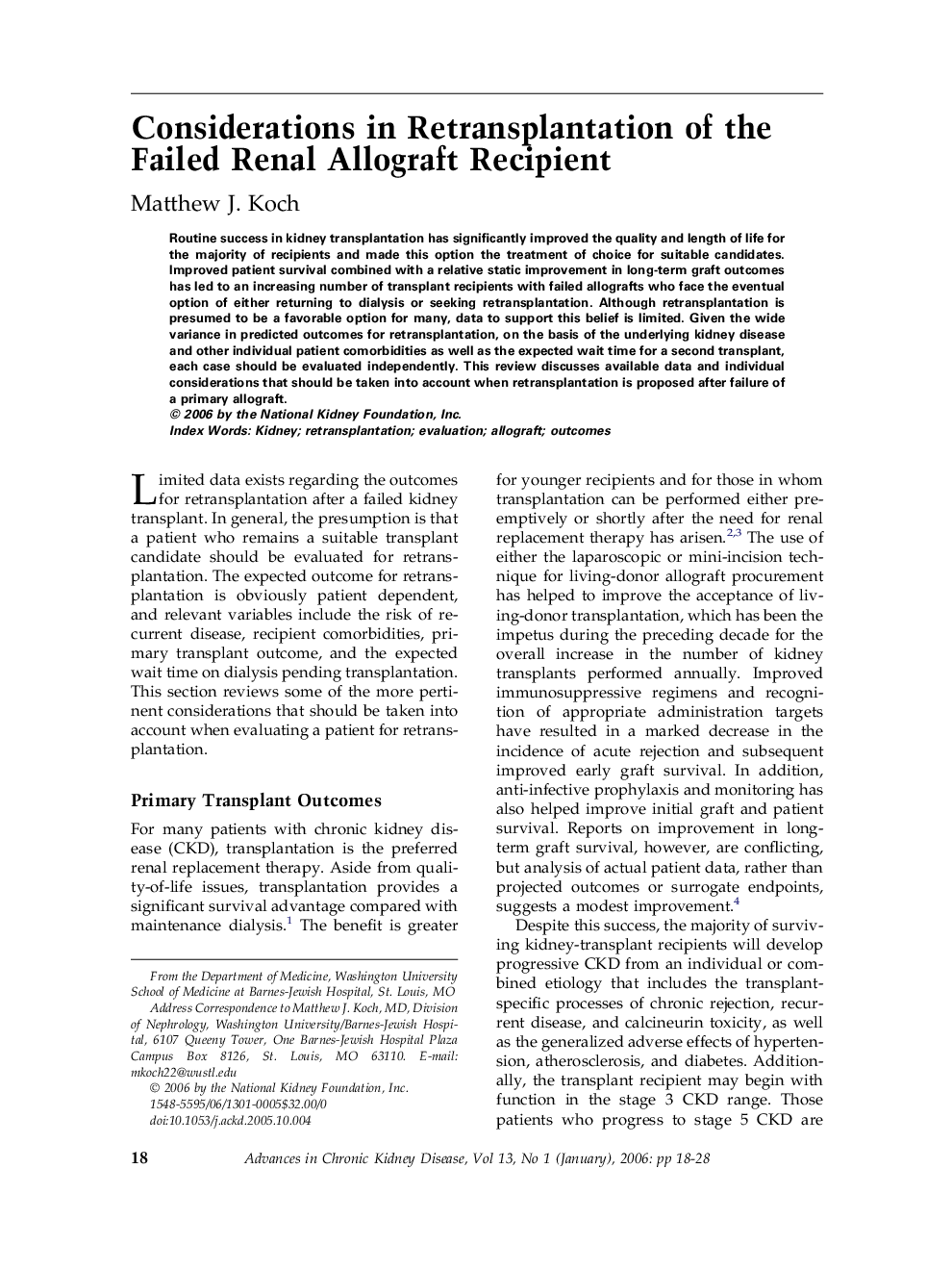| Article ID | Journal | Published Year | Pages | File Type |
|---|---|---|---|---|
| 3847089 | Advances in Chronic Kidney Disease | 2006 | 11 Pages |
Abstract
Routine success in kidney transplantation has significantly improved the quality and length of life for the majority of recipients and made this option the treatment of choice for suitable candidates. Improved patient survival combined with a relative static improvement in long-term graft outcomes has led to an increasing number of transplant recipients with failed allografts who face the eventual option of either returning to dialysis or seeking retransplantation. Although retransplantation is presumed to be a favorable option for many, data to support this belief is limited. Given the wide variance in predicted outcomes for retransplantation, on the basis of the underlying kidney disease and other individual patient comorbidities as well as the expected wait time for a second transplant, each case should be evaluated independently. This review discusses available data and individual considerations that should be taken into account when retransplantation is proposed after failure of a primary allograft.
Related Topics
Health Sciences
Medicine and Dentistry
Nephrology
Authors
Matthew J. Koch,
